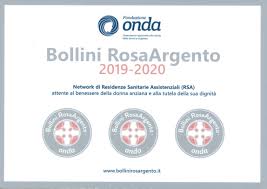Nel caso se ne avesse la curiosità, trova di seguito tutte le pubblicazioni scientifiche, frutto della collaborazione tra la Nova Salus s.r.l. e l'Università degli Studi dell'Aquila.
Using the Oxford Cognitive Screen to Detect Cognitive Impairment in Stroke Patients: A Comparison with the Mini-Mental State Examination
- Autori: Mauro Mancuso, Nele Demeyere, Laura Abbruzzese, Alessio Damora, Valentina Varalta, Fabio Pirrotta, Gabriella Antonucci, Alessandro Matano, Marina Caputo, Maria Giovanna Caruso, Giovanna Teresa Pontiggia, Michela Coccia, Irene Ciancarelli, Pierluigi Zoccolotti, The Italian OCS Group
- Rivista: Frontiers in Neurology
- Anno: 2018
- Dettagli
- Creato: Lunedì, 12 Marzo 2018 16:35
- Ultima modifica: Venerdì, 15 Maggio 2020 04:51
Background: The Oxford Cognitive Screen (OCS) was recently developed with the aim of describing the cognitive deficits after stroke. The scale consists of 10 tasks encompassing five cognitive domains: attention and executive function, language, memory, number processing, and praxis. OCS was devised to be inclusive and un-confounded by aphasia and neglect. As such, it may have a greater potential to be informative on stroke
cognitive defcits of widely used instruments, such as the Mini-Mental State Examination (MMSE) or the Montreal Cognitive Assessment, which were originally devised for demented patients.
Objective: The present study compared the OCS with the MMSE with regards to their ability to detect cognitive impairments post-stroke. We further aimed to examine performance on the OCS as a function of subtypes of cerebral infarction and clinical severity.
Methods: 325 frst stroke patients were consecutively enrolled in the study over a 9-month period. The OCS and MMSE, as well as the Bamford classifcation and NIHSS, were given according to standard procedures.
Results: About a third of patients (35.3%) had a performance lower than the cutoff (<22) on the MMSE, whereas 91.6% were impaired in at least one OCS domain, indicating higher incidences of impairment for the OCS. More than 80% of patients showed an impairment in two or more cognitive domains of the OCS. Using the MMSE as a standard of clinical practice, the comparative sensitivity of OCS was 100%. Out of the 208 patients with normal MMSE performance 180 showed impaired performance in at least one domain of the OCS. The discrepancy between OCS and MMSE was particularly strong for patients with milder strokes. As for subtypes of cerebral infarction, fewer patients demonstrated widespread impairments in the OCS in the Posterior Circulation Infarcts category than in the other categories.
Conclusion: Overall, the results showed a much higher incidence of cognitive impair ment with the OCS than with the MMSE and demonstrated no false negatives for OCS vs MMSE. It is concluded that OCS is a sensitive screen tool for cognitive defcits after stroke. In particular, the OCS detects high incidences of stroke-specifc cognitive impairments, not detected by the MMSE, demonstrating the importance of cognitive profling.
Ruolo della riabilitazione nella modulazione dello stress ossidativo in pazienti anziani con ictus cerebrale
- Autori: Ciancarelli I, Carolei A.
- Rivista: Geriatria 2012 Vol. XXIV; n. 2 Marzo/Aprile
- Anno: 2012
- Dettagli
- Creato: Lunedì, 26 Febbraio 2018 10:31
- Ultima modifica: Venerdì, 15 Maggio 2020 04:52
L’ictus cerebrale rappresenta la principale causa di disabilità in età adulta ed anziana. La riabilitazione neuromotoria convenzionale è volta al miglioramento delle performance motorie e cognitive del paziente con ictus per ripristinare la migliore autonomia funzionale e qualità di vita possibili in relazione al danno cerebrale. Nella patogenesi dell’ictus ischemico la brusca riduzione del flusso ematico cerebrale determina un’aumentata sintesi di ossido nitrico (NO) che contribuisce al danno neuronale ed endoteliale. L’NO è un radicale libero altamente reattivo che si comporta come un neurotrasmettitore ed è coinvolto nel controllo dell’attività neuronale e nella regolazione dei fenomeni implicati nella plasticità cerebrale. La riabilitazione neuromotoria convenzionale intensiva contribuisce a diminuire i livelli sierici di NO così riducendo lo stress ossidativo e conseguentemente il danno endoteliale e neuronale. Inoltre, la modulazione della biodisponibilità dell’NO facilita la plasticità neuronale favorendo i processi di rimodellamento sinaptico con conseguente miglioramento dei deficit neuromotori del paziente con ictus ischemico.








